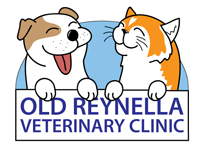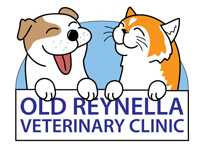Vaccination is one of the most common veterinary procedures undertaken in small animal practice. Vaccinating your pets against preventable diseases is a key component of responsible pet ownership as it helps reduce the risk of them becoming unwell from some severe, life-threatening diseases.
Vaccines are particularly important should you need to place your pet in a boarding facility, or if they are walked in public areas. In addition, the core diseases we vaccinate against not only pass from one patient to another via direct contact, they can be transferred from the outside world to your pet through vectors such as clothing or shoes; insects and/or objects.
The World Small Animal Veterinary Association (WSAVA) releases guidelines regarding the use of vaccinations. Vaccinations are split into two separate groups; core vaccines and non-core vaccines.
Core vaccines should be administered to all animals to protect them against severe, life-threatening disease that have a global distribution. These include:
Dogs
- Canine distemper virus
- Canine adenovirus (hepatitis)
- Canine parvovirus
Cats
- Feline parvovirus (panleukopaenia)
- Feline calicivirus
- Feline herpesvirus (viral rhinotracheitis)
Non-core vaccines are required by animals whose geographic location; local environment or lifestyle places them at risk of contracting specific infections. These include:
Dogs
- Parainfluenza and Bordetella bronchiseptica (Canine Kennel Cough)
- Leptospira interrogans (leptospirosis)
Cats
- Feline leukaemia virus (FeLV)
- Chlamydia felis
- Feline immunodeficiency virus (FIV)
All puppies and kittens should be vaccinated with an initial course against all core diseases listed above. These are routinely given in 3 separate boosters at 6-8 weeks, 10-12 weeks and 16 weeks.
Immunity Testing is Available.
Given the fact that each animal should be treated as a unique being, we offer the option of titre-testing for appropriate levels of immunity prior to vaccination. This testing is only avail for dogs and cats, and has up to a 21 day turn around for results. Immunity testing is unfortunately very expensive but can give you peace of mind if you have concerns regarding over-vaccination. While we have had no indication or been presented with reliable peer-reviewed clinical studies of the risks associated with over vaccination in pets, we respect each and every clients opinion and want to provide the best options and highest level of safety and care for your four-legged friend.
In dogs, the titre-tests only check for immunity to Parvovirus and Distemper.
In cats, the titre-tests check for immunity to Herpes, Parvovirus and Calicivirus.

Rabbits
Rabbits require vaccinations against Calicivirus. Calicivirus is an infectious disease that leads to death in unvaccinated rabbits. It is mostly transmitted via contact with infected rabbits and vectors such as flies and mosquitoes, but can also be spread via contact with contaminated hay / bedding or clothing. Our clinic follows WSAVA guidelines and recommends the following vaccination protocols to help protect your rabbit against calicivirus:
Kittens (Baby rabbits): 3 separate vaccinations given at 4,8 and 12 weeks of age, then every 6 months for life
Adults (who have not been previously vaccinated): 2 vaccinations 1 month apart, then every 6 months for life.
More information about Calicivirus and the release of new strains can be found here.
Ferrets
Ferrets require vaccination against Canine Distemper. Canine Distemper is an infectious disease that leads to death in ferrets. It is mostly transmitted via exposure to the airborne virus or contact with the bodily fluids of another infected individual, but can also be spread by contact with shoes and clothing, cages and/or bedding.
Our clinic recommends annual vaccinations for ferrets to protect them against Canine Distemper Virus.

Common Vaccination Reactions.
While vaccination reactions are uncommon, they can still happen.
Thankfully, most pets are back to their normal selves within a day or two of vaccination. If you have any concerns, please contact us.
Feeling “Off”
The most common vaccine reactions in pets are lethargy and soreness, which may or may not be combined with a mild fever. This occurs because the pet’s immune system reacts both locally and systemically to vaccine administration. Creating an immune response is the whole point of vaccination; should they come into contact with the pathogen in the future, their immune system can respond quickly and provide protection for your pet.
Lumps and Bumps
When a vaccine is injected under the skin, a small swelling may develop at the site because of local irritation. This bump can sometimes be tender to the touch but should not grow (after the first few days), ooze, or become more painful. If it does, please contact us.
Sneezing and Sniffling
Most vaccines are given by injection, except for the canine cough vaccine which is given in puppies via droplets in the nose. This intranasal vaccine will also be given in adult dogs whose vaccinations are overdue and more potent immunity is required in one dose. As it is given in the nose, your dog may sneeze, cough, or develop stuffy/runny noses for a few days after administration.
These types of vaccine reactions in dogs should resolve on their own within a day or two. If you have any concerns, please contact us.
Less Common Vaccine Reactions:
Anaphylaxis
Anaphylaxis is a potentially life-threatening allergic reaction which will occur soon after vaccination; usually within minutes to hours at the most. Pet’s undergoing anaphylaxis will typically develops hives, itchiness, facial swelling, vomiting, diarrhea, and/or difficulty breathing. If you notice these symptoms in your pet within a few hours of vaccination, contact the clinic immediately.
Infection or Abscess
Any type of injection can lead to an infection or formation of the abscess at the site of administration. Symptoms to watch for include discolouration of the skin (often red), discomfort, swelling, and in some cases, a purulent discharge. Should you notice these types of symptoms, please contact the clinic.


